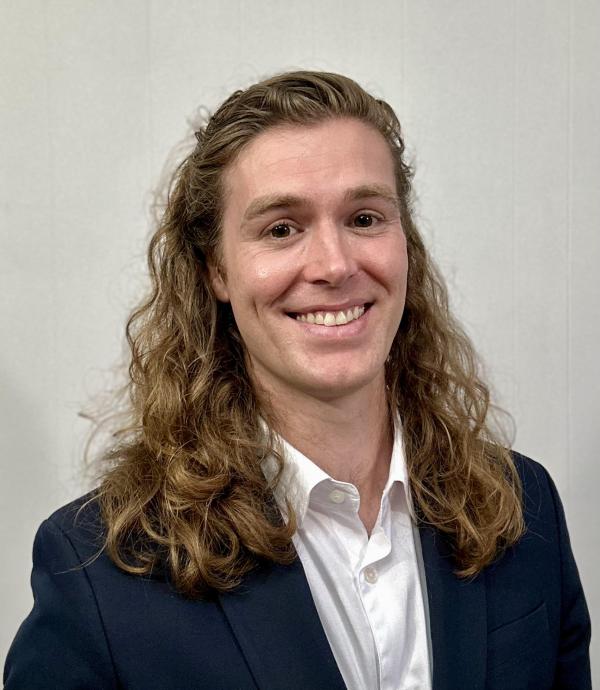
Thomas Osborn Popp
Thomas Osborn Popp
Biography
Tom began his research career while working on his B.S. in chemistry at Arizona State University, using nuclear magnetic resonance (NMR) to study arthropod silks, followed by a short research stint at Sandia National Laboratories in Albuquerque, NM, measuring diffusion of molecules within porous carbons with NMR. He then went on to obtain a Ph.D. in physical chemistry at the University of California Berkeley, using solid-state NMR to study the structure and properties of metal-organic and covalent organic framework materials (MOFs, COFs). After completing his Ph.D., he spent a year as a postdoctoral researcher at ETH Zürich developing new methodology and hardware for solid-state NMR and dynamic nuclear polarization (DNP) experiments. In 2021, Tom was awarded an Arnold O. Beckman Postdoctoral Fellowship in Chemical Instrumentation at Rutgers University to develop NMR instrumentation to address challenging biomolecular problems such as the localization of peripheral membrane proteins on phospholipid membranes and high-pressure biology. As of September 2023, he is currently an assistant professor of chemistry in the Department of Chemistry, working on developing new NMR methods and technology to study complexity in material and biological systems.
Research
The Osborn Popp Lab works at the interface of physical chemistry, materials science, and chemical biology to quantify and control the spatial arrangement of molecules within complex systems. We develop cutting-edge NMR methods and technology to study systems with elements of both structural order and compositional heterogeneity. We make use of tools uncommonly utilized in traditional chemistry labs such as computer-aided design (CAD) and 3D printing to develop new approaches to scientific questions that are otherwise challenging to answer by currently available techniques. Research in our lab is highly interdisciplinary, blending biological and inorganic synthetic laboratory techniques with a hands-on approach to custom-built synthetic and spectroscopic instrumentation.
Education
Ph.D. (2019) University of California, Berkeley
B.S. (2014) Arizona State University
Research areas
Physical ChemistryAwards
- Arnold O Beckman Postdoctoral Fellowship in Chemical Instrumentation (2021)
- Chevron-UC Berkeley Graduate Fellowship (2018)
- National Science Foundation Graduate Research Fellowship (2015)
- Outstanding Graduate Student Instructor, UC Berkeley (2015)